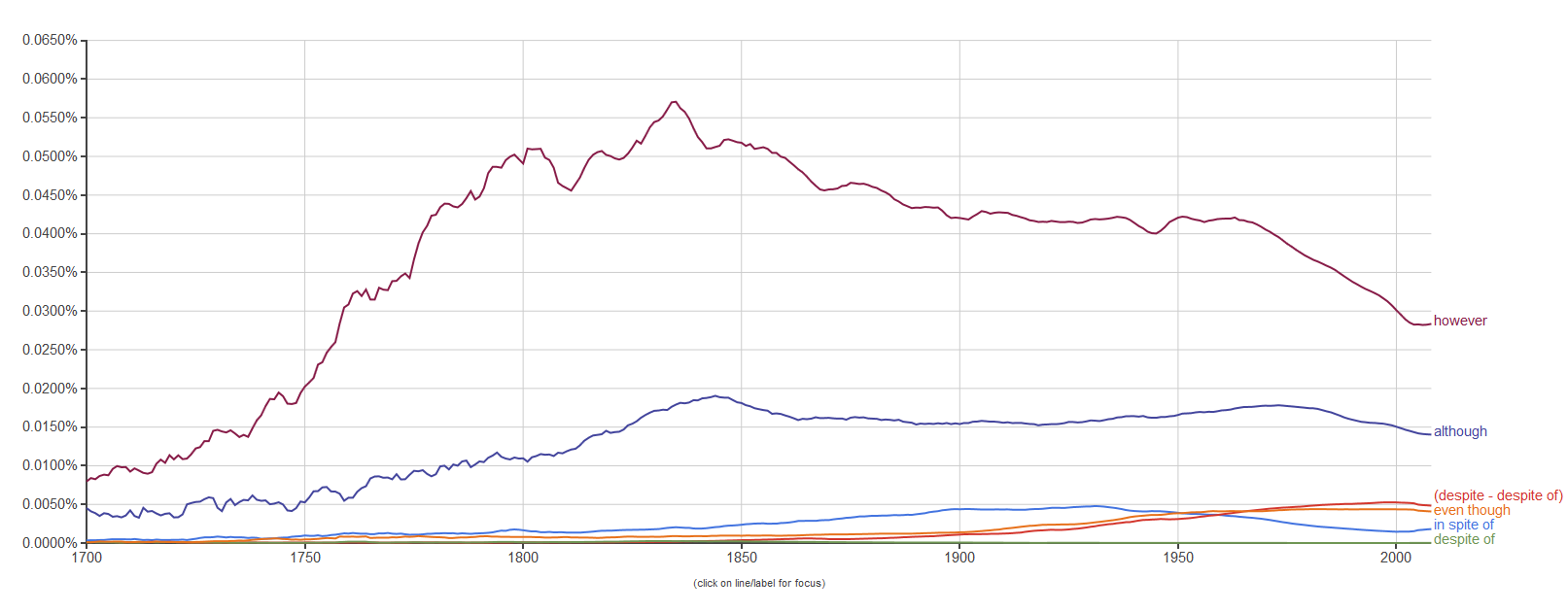Prompted by the questions about "despite"/"in spite of" on ELL and EL&U I played in N-gram for in spite of, despite even though, although, however.
After 1750 there is a sharp rise in most of them. Did the general language change to start including negative clauses or did some word fall out of favor to increase popularity of all the rest?
I tried comparing the chart with "but" but despite the steady decline, it didn't register any sharp drops between 1730 and 1800. So what expression was in popular use in the role of these conjunctions, that they replaced?
(footnote: The graph for "However" may be wrong; Ngram refuses to acknowledge "However" can be a conjunction; (however_CONJ) yields a flat zero; so does (however - however_ADJ))


althoughalmost quadrupled ,howeverreaching 5x the original over a 100 years period.